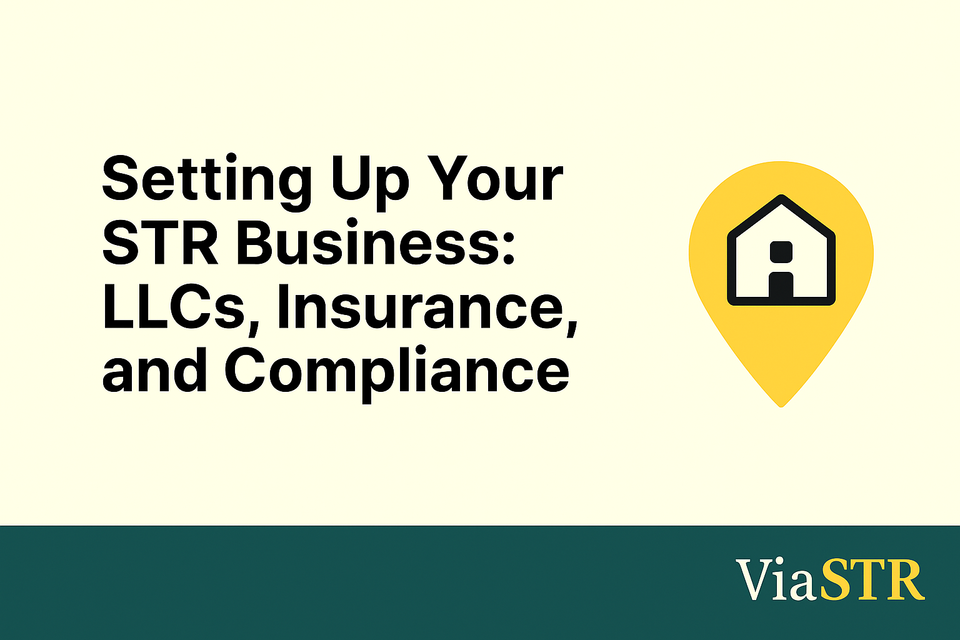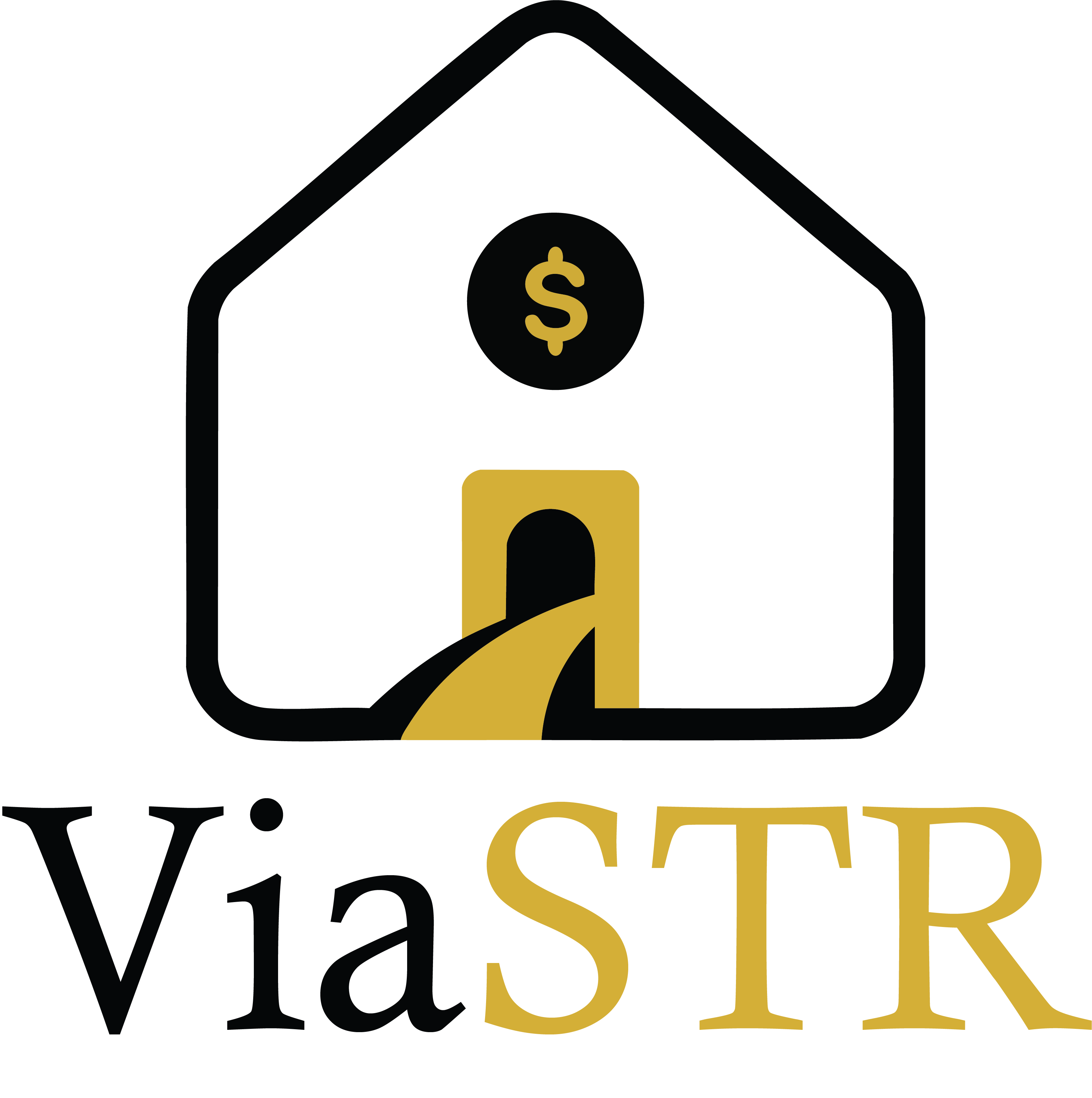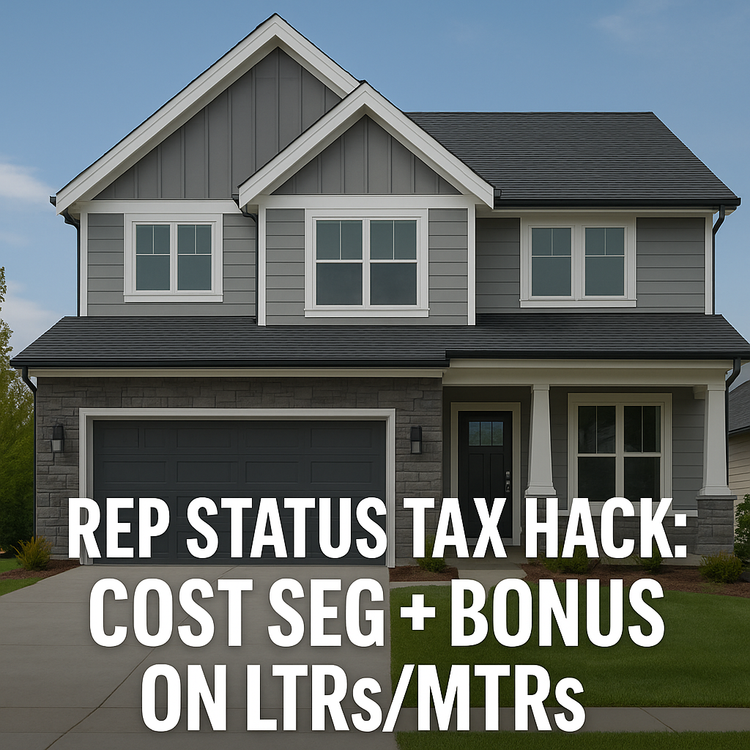Setting Up Your STR Business: LLCs, Insurance, and Compliance

At a Glance
- Form an LLC to protect your personal assets and build scalability.
- Get STR-specific insurance—homeowner policies won’t cover you.
- Stay compliant with permits, zoning, and taxes from day one.
- Keep records organized in a digital vault to stay audit-ready.
- Build a foundation for scale so your STR wealth lasts long-term.
Why Treating Your STR Like a Business Matters
Treating your short-term rental (STR) like a true business from the start protects your investment, keeps you compliant, and sets you up for scalable growth.
Many W2 earners overlook this step, but building the right foundation ensures your STR wealth is built to last. Let’s break down the essentials.
1. Form the Right Legal Entity
Why an LLC Matters
An LLC (Limited Liability Company) shields your personal assets from business risks. If something goes wrong at your STR—like a guest injury, fire, or lawsuit—your home, savings, and W2 income stay protected.
- Single Property? A dedicated LLC for that STR is often best.
- Growing Portfolio? Consider a holding company structure with separate LLCs for each property, rolling up under one umbrella.
📌 Pro Tip: Some investors set up their LLC in the same state as the property for smoother compliance, while others use states with favorable business laws (like Wyoming or Delaware) for additional protections. Always consult with a CPA or attorney before finalizing your structure.
2. Get STR-Specific Insurance
Why Homeowner’s Insurance Isn’t Enough
Standard homeowner or landlord policies usually exclude STR activity. This leaves you dangerously exposed if you’re hosting guests.
Instead, choose a provider specializing in STR coverage, such as:
- Proper Insurance
- Steadily
- Obie
What STR Insurance Covers
- Guest damage to property
- Liability if someone is injured
- Loss of income if your STR becomes uninhabitable
And don’t forget: an umbrella policy can provide extra liability coverage across your personal and business assets.
3. Stay Compliant With Local Rules
Every Market is Different
Protect your STR business by staying on top of:
- Permits & Licensing – Many cities now require hosts to register and renew annually.
- Zoning Rules – Even if the property is perfect, STRs may not be allowed in that neighborhood.
- Tax Registration – Many markets require you to collect and remit lodging or occupancy taxes.
“Compliance isn’t glamorous, but falling behind can sink your STR faster than a bad review.”
💡 Pro Tip: Keep all permits, insurance documents, and compliance records in a digital vault (e.g., Google Drive, Dropbox, or a dedicated STR tool) so you’re always audit-ready.
Building the Foundation for Long-Term STR Success
The investors who last aren’t just running properties—they’re running businesses. With the right setup, you’ll sleep well at night knowing your STR business is protected, compliant, and ready to scale.
👉 Want to go deeper on protecting your STR wealth? Read our guide on Passing STR Wealth to Your Kids.
Next Steps
- Previous Post: How to Negotiate STR Offers Like a Pro
- Next Post: Scaling Beyond Your First STR: Portfolio Growth Strategies (coming soon)
See Also
- The 6-Phase Journey: How W2 Earners Build Wealth with STRs
- Financing Your First STR: Loan Options for W2 Earners
- How to Analyze STR Deals Like a Pro



